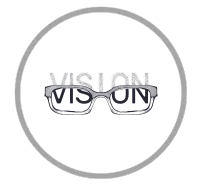Kleinwood Vision
Color Vision Testing for A
Bright, Colorful Future
Color Vision Testing for a Bright, Colorful Future
FSDAVCFEBFEVSDDVFSD
FSDAVCFEBFEVSDDVFSD
FSDAVCFEBFEVSDDVFSD
Notice: This article is for informational purposes only. Kleinwood Vision offers basic color vision testing only. For the advanced testing described here, please visit The University of Houston.
Discover True Color Accuracy
Color vision testing is essential for anyone interested in understanding their color perception abilities, whether for personal insight or professional requirements. Accurate assessment of color vision can reveal a variety of color vision deficiencies, which may impact everyday tasks or specific careers requiring precise color identification. With advances in diagnostic tools, color vision testing has become highly precise, allowing individuals to understand the extent of any color perception challenges. This informative guide explores the importance of color vision testing, the types of color vision deficiencies it can identify, and the ways in which individuals can manage their unique color perception profiles effectively.
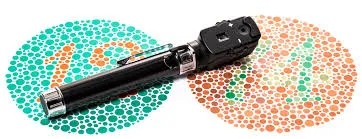
Color vision testing is essential for anyone interested in understanding their color perception abilities, whether for personal insight or professional requirements. Accurate assessment of color vision can reveal a variety of color vision deficiencies, which may impact everyday tasks or specific careers requiring precise color identification.
With advances in diagnostic tools, color vision testing has become highly precise, allowing individuals to understand the extent of any color perception challenges. This informative guide explores the importance of color vision testing, the types of color vision deficiencies it can identify, and the ways in which individuals can manage their unique color perception profiles effectively.

What is Color Vision Testing?
Color vision testing is a critical process used to assess an individual's ability to distinguish between colors. This testing is essential for diagnosing color vision deficiencies, commonly known as color blindness. We utilize well-established methods such as the Ishihara color test and the Farnsworth-Munsell 100 hue test. The Ishihara test, primarily used for identifying red-green color deficiencies, involves interpreting numbers within dots of varying colors.
The Farnsworth-Munsell 100 hue test is more comprehensive, requiring individuals to arrange colored discs according to hue. This test helps in detecting subtle color vision anomalies and determining the type and severity of color blindness. Through these diagnostic methods, your optometrist can provide accurate assessments and necessary guidance for managing and adjusting to color vision deficiencies.
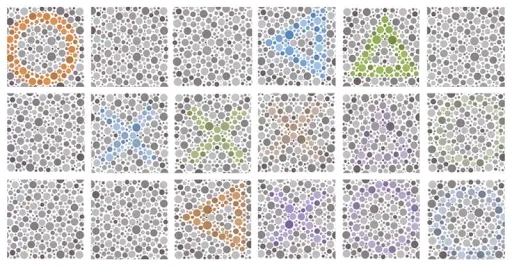
Color vision testing not only plays a crucial role in diagnosing color vision deficiencies but also in assessing overall eye health. Conditions such as glaucoma, diabetes, and macular degeneration can affect color vision, making early detection through these tests vital. Our approach ensures that any underlying health issues impacting color perception are identified promptly, allowing for timely intervention and treatment.
In addition to its diagnostic value, color vision testing is essential for certain professions where accurate color perception is critical. Fields such as aviation, electrical work, graphic design, and even some areas of healthcare rely heavily on precise color discrimination. Our office provides a general color vision test only, but the University of Houston can offer state-of-the-art color vision testing. This testing helps ensure that individuals meet the necessary visual requirements for their careers, enhancing both safety and performance.

Color vision testing not only plays a crucial role in diagnosing color vision deficiencies but also in assessing overall eye health. Conditions such as glaucoma, diabetes, and macular degeneration can affect color vision, making early detection through these tests vital. Our approach ensures that any underlying health issues impacting color perception are identified promptly, allowing for timely intervention and treatment.
In addition to its diagnostic value, color vision testing is essential for certain professions where accurate color perception is critical. Fields such as aviation, electrical work, graphic design, and even some areas of healthcare rely heavily on precise color discrimination. Our office provides a general color vision test only, but the University of Houston can offer state-of-the-art color vision testing. This testing helps ensure that individuals meet the necessary visual requirements for their careers, enhancing both safety and performance.
At Kleinwood Vision, we are committed to providing informative resources about color vision testing. Understanding the results and implications of a color vision assessment is crucial for anyone affected by color perception challenges. Although we offer general color vision testing, our goal is to support patients in understanding their results and exploring possible adaptations. Solutions such as corrective lenses, visual aids, or lifestyle adjustments may be beneficial for some individuals. By offering guidance on these options, we aim to help each person make informed decisions about managing their color vision needs effectively.
At Kleinwood Vision, we are committed to providing informative resources about color vision testing. Understanding the results and implications of a color vision assessment is crucial for anyone affected by color perception challenges. Although we offer general color vision testing, our goal is to support patients in understanding their results and exploring possible adaptations. Solutions such as corrective lenses, visual aids, or lifestyle adjustments may be beneficial for some individuals. By offering guidance on these options, we aim to help each person make informed decisions about managing their color vision needs effectively.
Identifying Color Vision Deficiencies
Color vision deficiency testing is essential for accurately identifying various types of color blindness, helping individuals better understand and adapt to their visual limitations. Although Kleinwood Vision does not provide specialized color vision testing, we emphasize the importance of such assessments, which often include tests like the Ishihara test for red-green color deficiencies and the comprehensive Farnsworth-Munsell 100 hue test to evaluate a broader range of color perception. These tests play a vital role in diagnosing the specific type and severity of color vision deficiency.
With a precise diagnosis, individuals can explore options for managing their condition, whether through occupational adjustments or the use of visual aids designed for color vision deficiencies. Kleinwood Vision is committed to informing patients about the significance of color vision testing and the potential strategies available to enhance their daily visual experiences.
Identifying color vision deficiencies early is vital for ensuring that individuals can effectively manage their condition. For children, early diagnosis is particularly important as it can impact learning and development. At Kleinwood Vision, we recommend routine color vision screening for young patients to detect any issues that might affect their educational progress.
In adults, color vision testing is often necessary for certain job requirements and daily activities. Professions such as pilots, electricians, and graphic designers require precise color discrimination. Through our understanding of detailed testing and diagnosis, we help adults comprehend their color vision limitations, and how to thrive with them regardless.
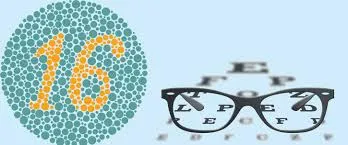

Identifying color vision deficiencies early is vital for ensuring that individuals can effectively manage their condition. For children, early diagnosis is particularly important as it can impact learning and development. At Kleinwood Vision, we recommend routine color vision screening for young patients to detect any issues that might affect their educational progress.
In adults, color vision testing is often necessary for certain job requirements and daily activities. Professions such as pilots, electricians, and graphic designers require precise color discrimination. Through our understanding of detailed testing and diagnosis, we help adults comprehend their color vision limitations, and how to thrive with them regardless.
Color vision can change over time due to various factors, including aging and medical conditions. Regular check-ups allow us to track any changes in color perception and adjust our recommendations accordingly. By providing continuous support, we help our patients maintain optimal visual health and quality of life.
Color vision can change over time due to various factors, including aging and medical conditions. Regular check-ups allow us to track any changes in color perception and adjust our recommendations accordingly. By providing continuous support, we help our patients maintain optimal visual health and quality of life.
Frequently Asked Questions
Frequently Asked Questions
What is color vision testing?
Color vision testing assesses an individual's ability to perceive and distinguish between colors. It is essential for diagnosing color vision deficiencies, commonly known as color blindness.
Who should undergo color vision testing?
Anyone who may have difficulty distinguishing colors, or who requires accurate color vision for their profession, should consider testing. This includes roles in design, transport, and certain sports.
What tests are used in color vision testing?
Common tests include the Ishihara test for red-green color deficiencies and the Farnsworth-Munsell 100 hue test, which can diagnose a broader range of color vision issues.
Can color vision deficiencies be corrected?
While color vision deficiencies generally cannot be cured, there are tools and aids, such as specially tinted glasses or contact lenses, that can help manage the condition and improve color discrimination
Are there any new technologies in color vision testing?
Yes, advancements like digital color vision tests offer more precise diagnostics and the ability to monitor changes over time, providing a more detailed assessment than traditional methods.
How accurate are color vision tests?
Tests like the anomaloscope and digital testing methods are highly accurate in diagnosing the type and severity of color vision deficiencies.
Can children be tested for color vision deficiencies?
Yes, children can be tested, often from the age of four. Early diagnosis can help manage any challenges that arise due to color vision deficiencies, especially in educational settings.
What is the difference between being colorblind and having a color vision deficiency?
Color blindness typically refers to a complete inability to see color. In contrast, a color vision deficiency, which is far more common, means having a reduced ability to see colors or differences between colors .
Can women be color-deficient?
Yes, women can also have color vision deficiencies, though less commonly than men due to genetic factors. Both genders can acquire color deficiencies due to factors like aging or certain medications.
Where can I get tested for color vision deficiencies?
Many eye care professionals offer color vision testing at a basic level. For advanced testing, visit the University of Houston Eye Care. It's best to consult with a color vision specialist or an ophthalmologist who can provide detailed testing and management recommendations.
Advanced Diagnostic Tools and Techniques
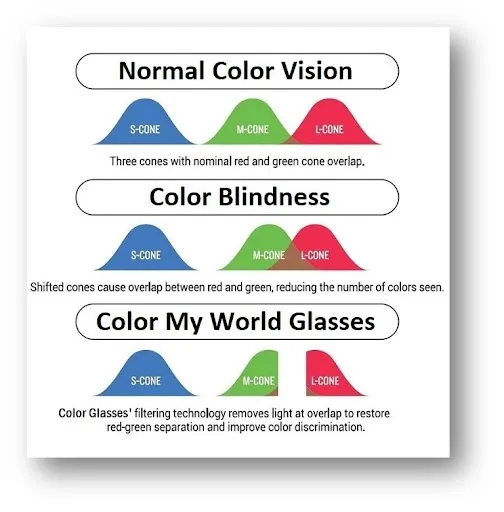
Optometrists utilize a range of advanced diagnostic tools and techniques to ensure accurate color vision assessments, leading to improved understanding and management of color perception. While Kleinwood Vision does not offer specialized color vision testing, we recognize the value of modern assessment tools such as digital colorimeters and spectrophotometers, which provide detailed insights into an individual's color discrimination abilities. For those seeking color vision correction, methods like customized tinted lenses are commonly recommended, as they can enhance contrast and color differentiation for individuals with color vision deficiencies.
Computerized training programs have shown promise in improving color recognition and processing by reinforcing the neural pathways involved in color vision. While Kleinwood Vision does not offer specialized color vision training, we understand the importance of adaptive technologies available to help individuals adjust to their color vision limitations in daily life. Advanced tools, such as augmented reality (AR) applications, can alter color wavelengths in real time to compensate for color deficiencies, offering practical solutions for daily challenges. These innovative approaches can significantly improve the quality of life for individuals by providing tools that make color recognition easier and more accurate.
Optometrists utilize a range of advanced diagnostic tools and techniques to ensure accurate color vision assessments, leading to improved understanding and management of color perception. While Kleinwood Vision does not offer specialized color vision testing, we recognize the value of modern assessment tools such as digital colorimeters and spectrophotometers, which provide detailed insights into an individual's color discrimination abilities. For those seeking color vision correction, methods like customized tinted lenses are commonly recommended, as they can enhance contrast and color differentiation for individuals with color vision deficiencies.

Computerized training programs have shown promise in improving color recognition and processing by reinforcing the neural pathways involved in color vision. While Kleinwood Vision does not offer specialized color vision training, we understand the importance of adaptive technologies available to help individuals adjust to their color vision limitations in daily life. Advanced tools, such as augmented reality (AR) applications, can alter color wavelengths in real time to compensate for color deficiencies, offering practical solutions for daily challenges. These innovative approaches can significantly improve the quality of life for individuals by providing tools that make color recognition easier and more accurate.
Tailored Color Vision Correction and Therapy
At Kleinwood Vision, we provide specialized color vision correction and therapy services designed to manage and enhance color deficiencies effectively. Our approach is tailored to each patient's specific needs, utilizing a combination of advanced diagnostic assessments and personalized therapeutic interventions.
Our color vision correction solutions include customized corrective lenses, which are designed to improve color discrimination by enhancing specific wavelengths of light. These lenses can significantly improve the ability to perceive and differentiate colors, particularly in individuals with mild to moderate color blindness.
In addition to hardware solutions, we offer color vision therapy programs that employ a series of exercises aimed at enhancing color recognition and processing. These programs are particularly effective in training the brain to interpret better color information, which can be beneficial for both professional tasks and daily activities.
By understanding the results of state-of-the-art technology with individualized treatment plans, Kleinwood Vision ensures that each patient receives the most effective and comprehensive care possible. Our goal is not only to improve color perception but also to enhance overall visual performance, thereby improving the quality of life for those with color vision deficiencies

Contact Info
Hours of Operation
Mon - Fri | 9:00 AM - 5:00 PM
Sat - Sun | Closed
Holiday Hours: We are closed for the following holidays: New Years Day, Memorial Day, Independence Day, Labor Day, Thanksgiving Day, Christmas Day
© 2026 Kleinwood Vision. All rights Reserved.

